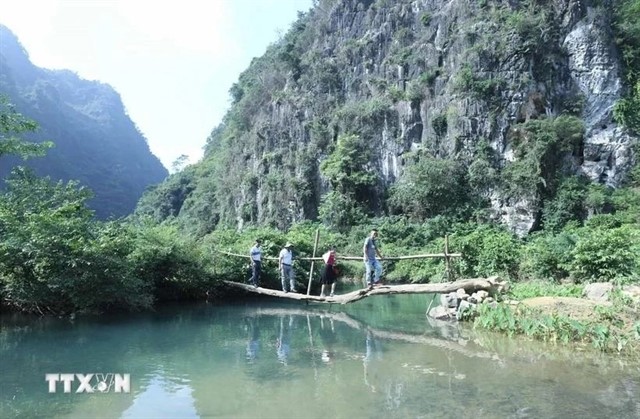Aside from harnessing domestic resources, it is important to attract foreign investment to optimise the potential and advantages of ethnic minority and mountainous areas, according to experts.

Aside from harnessing domestic resources, it is important to attract foreign investment to optimise the potential and advantages of ethnic minority and mountainous areas, according to experts.
Such 'soft' factors as limited knowledge, skills and experience have impacted foreign investment attraction in ethnic minority and mountainous areas, they said.
Hoàng Văn Xô, director of the Department of International Co-operation at the Government’s Committee for Ethnic Minority Affairs (CEMA), said there are 53 ethnic minority groups with 11.7 million people residing in 52 provinces and cities nationwide, accounting for over 11 per cent of the total population.
Developing ethnic minority areas is a consistent priority policy of the Vietnamese Party and Government, he said.
Xô noted that the biggest asset of ethnic minority communities is the eight million working-age people, so a measure for eliminating poverty has to be promoting human resource training.
Hong Sun, chairman of the Korean Chamber of Commerce in Việt Nam (KOCHAM), said businesses from the Republic of Korea (RoK) have invested in some mountainous provinces such as Cao Bằng, Lai Châu, Điện Biên and Bắc Kạn, but the investment value remains modest.
He perceived that in the investment promotion for ethnic minority and mountainous areas, it is necessary to select projects that suit local conditions. For example, northern midland and highland localities should not call for investment in the semiconductor sector, but hi-tech agriculture.
The distance between urban and mountainous areas in Việt Nam is too big, Hong pointed out, adding that one of the biggest barriers is the incomplete transport infrastructure.
Therefore, CEMA should coordinate with the Ministry of Planning and Investment to mobilise more resources for developing infrastructure and the workforce, the KOCHAM executive suggested.
Echoing the view, Morimoto Yutaka, chairman of the Japanese-invested Accord Biz Co. Ltd, recommended mountainous provinces focus on attracting foreign investment to hi-tech agriculture to make use of local human resources and favourable natural conditions.
To do that, Việt Nam needs to expand the logistics system, infrastructure and, especially, export markets, according to Yutaka.
To continue tapping into mountainous areas’ potential, CEMA’s Department of International Cooperation recently signed a strategic co-operation deal with the Institute of International Investment Studies Company (ISC) to support highland localities to improve foreign investment quality and effectiveness and attract more investment.
Under the deal, the two sides will cooperate in equipping the localities’ cadres with legal knowledge, improving their foreign investment management and promotion skills, organising investment promotion activities and giving advice on international investment co-operation.
Phan Hữu Thắng, chairman of the ISC and the Việt Nam Industrial Park Finance Association, described the agreement as an important step in mobilising international resources and experience to help with socio-economic development in ethnic minority and mountainous areas, improve local lives and enhance the country’s integration into the world. — VNS
- Tags
- foreign investment





